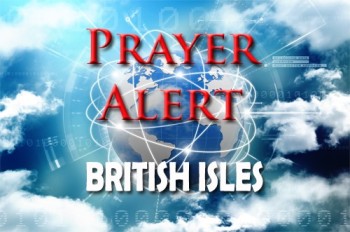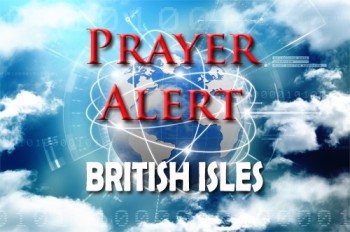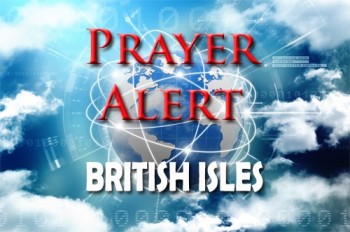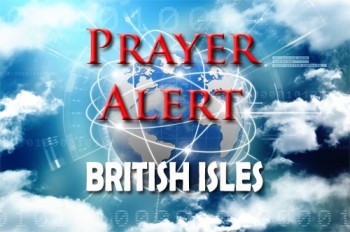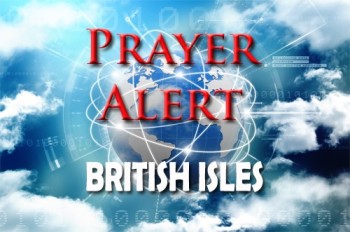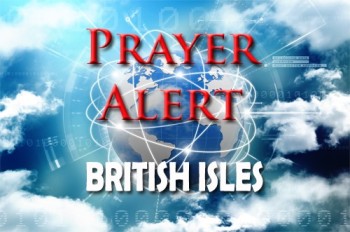Displaying items by tag: Politics
I have never authorised attacks on ministers, says PM
Keir Starmer has firmly denied authorising anonymous briefings against members of his cabinet after reports suggested some aides believed he could face a leadership challenge from health secretary Wes Streeting. At PMQs, he called such attacks completely unacceptable, insisting he appointed his ministers because they are 'the best people to carry out their jobs’. Streeting, who missed PMQs to address an NHS conference, rejected claims he was plotting a leadership bid and criticised what he described as a 'toxic culture' inside No 10 - though he does not believe the prime minister is responsible. Kemi Badenoch accused Starmer of having 'lost control of his government’, while speculation persists within Labour about who might stand if a contest were triggered. Despite a large 2024 majority, Starmer’s leadership has faced turbulence; with the Budget and devolved elections looming, internal unity is being tested.
Senegal: power struggle between president and prime minister
A political showdown has erupted in Senegal between president Bassirou Diomaye Faye and prime minister Ousmane Sonko, threatening to fracture the alliance that brought them to power. The dispute began when Faye dismissed Aïssatou Mbodj, a close Sonko ally, from her leadership role in the ‘Diomaye Président’ coalition, replacing her with his own confidante, Aminata Touré. Sonko’s Pastef party swiftly condemned the move as illegal, asserting that the president lacked authority to make such a decision and accusing him of betraying the coalition’s founding principles. The standoff exposes deep divisions over control and ideology at the heart of Senegal’s leadership, raising doubts about whether Faye can govern effectively without his powerful and popular prime minister. With rival factions now entrenched and public confidence wavering, the confrontation risks paralysing government operations and destabilising one of West Africa’s historically steady democracies.
Farage overtakes Starmer in poll on who would make better PM
A new poll has placed Reform UK leader Nigel Farage ahead of Keir Starmer as the public’s preferred choice for prime minister - the first time he has led in such polling. The survey, conducted from 10 to 13 October among 1,141 people, found 33% favoured Farage and 30% Starmer, while 29% were undecided. Ipsos’s Keiran Pedley said the result marks 'an intriguing shift' in the political landscape, with growing public confidence in Reform’s economic and immigration policies - issues Britons see as most important. Separate YouGov research also shows Labour’s support slipping to a record low of 17%, tied with the Conservatives, while Reform leads with 27%. The Greens have 16% and the Liberal Democrats 15%. Farage’s growing appeal, fuelled by dissatisfaction with both major parties, signals rising volatility in UK politics. Pressure is mounting pressure on Labour ahead of the autumn budget and next year’s local and national elections.
France: new PM to be named within 48 hours?
Emmanuel Macron is expected to appoint a new prime minister within 48 hours, following the abrupt resignation of Sébastien Lecornu’s government just 14 hours after being named. Lecornu, asked to outline a path forward, concluded that most lawmakers oppose snap elections and that a narrow parliamentary plurality could support a 2026 budget aimed at reducing France’s deficit, projected at 5.4 percent of GDP. Macron now faces the challenge of naming a leader capable of governing without a parliamentary majority - the same obstacle that brought down Lecornu’s predecessors. Choosing a centre-left prime minister from the Socialist Party could help build a coalition but would probably reignite controversy over Macron’s contested pension reform, which raised the retirement age. With political divisions deepening, Macron has yet to comment publicly, while far-right leader Marine Le Pen and her party have said they would vote to topple any new prime minister named before new elections, intensifying France’s ongoing political instability. For an assessment of Macron’s options, see
Czech Republic: former PM poised for comeback, faces difficult balancing act
Billionaire and former prime minister Andrej Babis is poised for a political comeback as his ANO party leads polls ahead of the October 3-4 elections. Having shifted from a liberal to a national-conservative position, Babis is promising voters financial relief and protection from external pressures such as immigration and climate policies. Yet his return to power would be fraught with complications. ANO is expected to fall short of a majority, forcing him to seek support from far-right or far-left allies who advocate leaving the EU and NATO – a stance at odds with his own pledge to remain. He also faces personal challenges, including a renewed fraud trial and a significant conflict of interest over his vast business empire, Agrofert, which receives significant EU subsidies. His alliances with figures like Hungary’s Viktor Orbán underscore his anti-Brussels stance, but navigating extremist demands while maintaining pro-Western ties may prove his toughest balancing act yet.
The Gospel was preached at Charlie Kirk’s memorial
The memorial service for Charlie Kirk at Arizona’s State Farm Stadium blended elements of political rally and charismatic evangelical worship, yet its defining feature was the bold proclamation of the Gospel. Speaker after speaker - from Ben Carson and Marco Rubio to JD Vance and even Donald Trump Jr - clearly articulated salvation through Christ. The most powerful moment came when Erika Kirk forgave her husband’s assassin, declaring that the forgiveness she has received through Jesus must also be extended to the one who made her children fatherless. Her testimony of grace was a profound witness before millions watching worldwide. Even Donald Trump appeared touched, seemingly showing an awareness of the cost of true faith and forgiveness. The service became a reminder that the Gospel is for all - even those we may struggle to accept. The legacy of Charlie Kirk now points beyond politics to the transforming power of Christ, challenging Christians everywhere to live and proclaim forgiveness and grace.
CAFOD and CofE bishops welcome recognition of Palestine by UK
CAFOD and Church of England bishops have welcomed the Government’s recognition of Palestinian statehood, calling it a long-overdue step towards peace. CAFOD’s Middle East representative said the move, alongside similar actions by France, Canada, Australia, and Portugal, affirms Palestinians’ right to a viable, independent state amid the devastation of Gaza and rising settlement violence in the West Bank. Bishop Christopher Chessun and fellow bishops stressed the recognition offers parity of esteem, countering extremism and strengthening moderates, though it will not immediately end the suffering in Gaza or West Bank abuses. They see it as a moral and political signal that occupation is unjust and must end through negotiation. Families of Israeli hostages have condemned the decision as rewarding Hamas; by contrast, Hamas has celebrated the recognition as a victory. UK church leaders have also warned that Israel’s ongoing military assault will only deepen human misery. Despite bleak realities, Christian leaders urged perseverance in seeking a just peace that upholds dignity for all communities. See
Andy Burnham warns UK needs 'wholesale change'
Greater Manchester mayor Andy Burnham has urged the Labour Party to pursue 'wholesale change' to confront what he described as an 'existential threat' to Britain. Speaking ahead of Labour’s annual conference in Liverpool, Burnham criticised the party’s leadership style under Keir Starmer as 'factional and divisive’. Though often tipped as a future leader, he insisted he was not plotting an immediate return to Westminster, but challenged Labour to present a clear plan to 'turn the country around’. He said he was willing to work with anyone serious about radical reform, citing his efforts to re-nationalise Manchester’s bus network as an example, and suggesting that core services such as housing, energy, water, and rail should return to public ownership. His intervention comes amid political turbulence for Starmer, following Angela Rayner’s resignation over tax errors, the sacking of Peter Mandelson for links to Jeffrey Epstein, and the departure of a senior aide over offensive leaked messages.
Musk's language abhorrent, says Shabana
Home secretary Shabana Mahmood has branded Elon Musk’s language at a London rally 'abhorrent’, after he warned of violence linked to uncontrolled migration and called for Parliament’s dissolution. Mahmood insisted: 'No-one gets to mess with British democracy’, stressing that Britain is a tolerant and diverse nation. Musk’s remarks, delivered in conversation with activist Tommy Robinson at the 150,000-strong 'Unite The Kingdom' march, were condemned across the political spectrum. Liberal Democrat leader Sir Ed Davey said Musk was 'deeply irresponsible, deeply dangerous’, while Downing Street called his words inflammatory and threatening to public order. Debate also arose over whether Musk’s Tesla and energy ventures should receive UK contracts, with critics urging government review. Nigel Farage defended Musk’s appeal to 'fight' through free speech and elections, though others accused him of fuelling division. As protests and counter-protests highlighted national tensions, Mahmood affirmed that English identity embraces both long heritage and diverse backgrounds.
Christian councillor ‘shocked’ at Danny Kruger’s defection to Reform UK
Conservative councillor Clare De Silva has expressed her sadness at fellow Christian Danny Kruger’s defection to Reform UK. Kruger, MP for East Wiltshire since 2019 and formerly shadow work and pensions minister under Kemi Badenoch, announced his move alongside Nigel Farage, who appointed him to lead a new Reform team preparing for government. Calling the decision 'very painful’, Kruger declared, 'The party is over: the flame is passing from one torch to another’, and praised Farage as 'our last hope' on the right. De Silva told Premier Christian News she was shocked and saddened, calling the departure a poignant loss. While disagreeing with his choice, she stressed the importance of Christians disagreeing well in politics: 'I know Danny is a God-fearing man and will have made this decision really carefully… we should disagree well.' The moment highlights both division and opportunity for grace among believers in public life.
